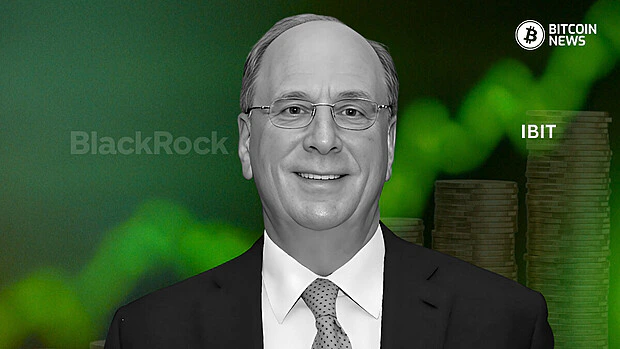In a remarkable turn of events, BlackRock’s Bitcoin ETF, the iShares Bitcoin Trust (IBIT) has overtaken Grayscale’s Bitcoin Trust (GBTC) to become the largest Bitcoin exchange-traded fund (ETF).
This transition marks a significant milestone in the competitive landscape of Bitcoin ETFs, highlighting BlackRock’s rapid ascent in the market.
On May 28, BlackRock’s IBIT experienced a notable inflow of $102 million, while Grayscale’s GBTC saw outflows amounting to $105 million.
According to data from Apollo, this shift in investments pushed IBIT’s holdings to 288,670 BTC, surpassing GBTC’s 287,450 BTC. As a result, IBIT’s assets reached nearly $20 billion, outpacing GBTC’s $19.7 billion.

Vetle Lunde, a senior analyst at K33 Research, commented on this development on X, stating:
“IBIT needed only 96 days to close GBTC’s huge lead.”
This rapid growth is a testament to the market’s confidence in BlackRock’s ETF.
One of the primary reasons for BlackRock’s success is the lower fee structure of its ETF compared to Grayscale’s. GBTC charges a 1.5% fee, while many of the new Bitcoin ETFs, including IBIT, offer significantly lower fees, some as low as 0.2%.
This cost difference has been a crucial factor for investors, prompting them to shift their holdings to more cost-effective options.
HODL15Capital noted:
“Grayscale held 620,000 BTC at the time of the conversion, which was more than 3% of circulating supply, but refused to lower the fee (1.5% vs 0.2% for peers), even after investors pulled 330,000+ BTC. So much for the ‘differentiated’ strategy.”

BlackRock’s strategic integration of IBIT into its various funds has further fueled its growth. The investment giant has incorporated IBIT into its income and bond-focused funds.
For instance, the Strategic Income Opportunities Fund (BSIIX) now holds over $3.5 million worth of IBIT, and the Strategic Global Bond Fund (MAWIX) holds $485,000. These moves have validated the institutional demand for bitcoin and bolstered investor confidence in IBIT.
The launch of spot Bitcoin ETFs in January created a competitive environment, with many new players entering the market. Grayscale’s GBTC, which once held 620,000 BTC, has seen its holdings decline as investors sought more favorable options.
Notably, Grayscale anticipated some outflows due to competition from funds with lower fees.
Former Grayscale CEO Michael Sonnenshein mentioned in an April podcast, “We knew coming into this and anticipated that there would be some outflows. GBTC is the collateral that was inside some of the bankruptcy estates around the crypto ecosystem.”
BlackRock’s rise to the top spot signifies a broader trend of increasing institutional acceptance of Bitcoin. The rapid ascent of IBIT, achieving over $20 billion in assets in a matter of months, also makes it one of the fastest-growing ETFs ever.
The SEC’s approval of Bitcoin ETFs has provided a gateway for traditional financial institutions, including banks and hedge funds, to offer digital asset exposure to their clients.
This mainstream adoption is a pivotal moment for the Bitcoin market, reflecting its growing legitimacy and appeal.
The bullish sentiment in the market has further accelerated IBIT’s growth.
IBIT, which had seen low or zero inflows before May 15 and experienced its first-ever outflows in April, has now become the focal point for investors looking to capitalize on the upward trend in the market.
Last week, U.S.-listed spot Bitcoin ETFs reached a new record, holding more than 850,000 BTC in custody, surpassing the previous high of 845,000 BTC from early April.
Another milestone was also reached recently, with all Bitcoin ETFs worldwide holding over 1,000,000 BTC in custody.










